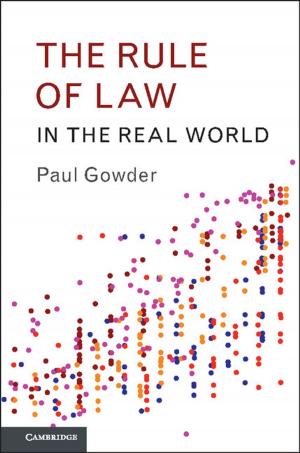Reason and Religion in the English Revolution
The Challenge of Socinianism
Nonfiction, History, British, Religion & Spirituality| Author: | Sarah Mortimer | ISBN: | 9780511739507 |
| Publisher: | Cambridge University Press | Publication: | March 4, 2010 |
| Imprint: | Cambridge University Press | Language: | English |
| Author: | Sarah Mortimer |
| ISBN: | 9780511739507 |
| Publisher: | Cambridge University Press |
| Publication: | March 4, 2010 |
| Imprint: | Cambridge University Press |
| Language: | English |
This book provides a significant rereading of political and ecclesiastical developments during the English Revolution, by integrating them into broader European discussions about Christianity and civil society. Sarah Mortimer reveals the extent to which these discussions were shaped by the writing of the Socinians, an extremely influential group of heterodox writers. She provides the first treatment of Socinianism in England for over fifty years, demonstrating the interplay between theological ideas and political events in this period as well as the strong intellectual connections between England and Europe. Royalists used Socinian ideas to defend royal authority and the episcopal Church of England from both Parliamentarians and Thomas Hobbes. But Socinianism was also vigorously denounced and, after the Civil Wars, this attack on Socinianism was central to efforts to build a church under Cromwell and to provide toleration. The final chapters provide a new account of the religious settlement of the 1650s.
This book provides a significant rereading of political and ecclesiastical developments during the English Revolution, by integrating them into broader European discussions about Christianity and civil society. Sarah Mortimer reveals the extent to which these discussions were shaped by the writing of the Socinians, an extremely influential group of heterodox writers. She provides the first treatment of Socinianism in England for over fifty years, demonstrating the interplay between theological ideas and political events in this period as well as the strong intellectual connections between England and Europe. Royalists used Socinian ideas to defend royal authority and the episcopal Church of England from both Parliamentarians and Thomas Hobbes. But Socinianism was also vigorously denounced and, after the Civil Wars, this attack on Socinianism was central to efforts to build a church under Cromwell and to provide toleration. The final chapters provide a new account of the religious settlement of the 1650s.















